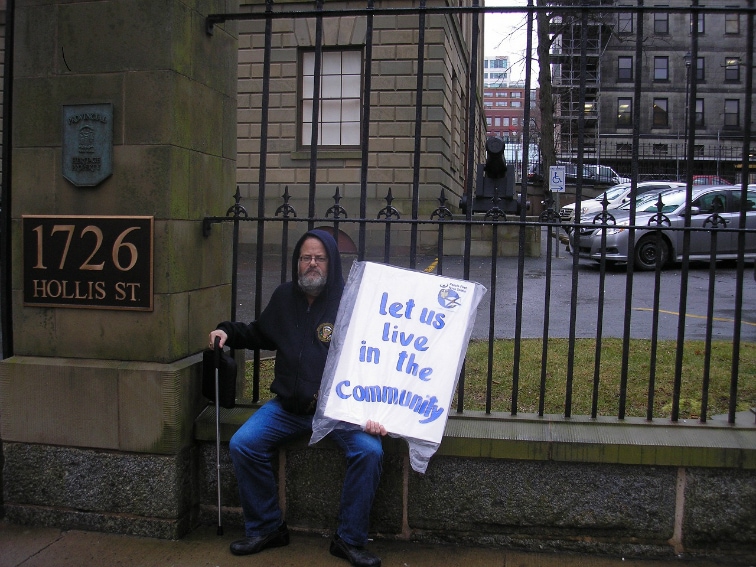KJIPUKTUK (Halifax) – The news of the death of Joshua Evans, a young man who lived with developmental disabilities and committed suicide while on remand in the Burnside Jail, is devastating.
The CBC reports that Nova Scotia Justice Minister Mark Furey now wants an investigation into Joshua’s death, including “whether he should have been there in the first place.”
In Nova Scotia we lock up people like Joshua all the time. Often in prison, where health care and mental health care needs are not sufficiently addressed. Even more frequently in prison-like institutions. And the province is just fine with that.
At this time residents of Emerald Hall, a closed ward within the Nova Scotia Hospital, are fighting Community Services at a human rights tribunal, because they want out and live in community. Nobody suggests that there is anything about their mental state that would make community living dangerous to others. Nonetheless, the province is fighting back tooth and nail.
At the same tribunal we learned how people approved for release and conditionally discharged from the East Coast Forensic Hospital often have no place to go because Community Services is unable to provide supportive housing and related services. So they just stick around, sometimes for as long as six years.
Horror stories about the kinds of care provided by these large institutions abound. There is the story of staff abuse suffered by Matthew Meisner, another resident of Emerald Hall. There are statistics about abuse that keep many a parent awake at night.
Then there is the story of Nichelle Ben, the young woman who in 2013 was fingerprinted and charged with assault for throwing a foam toy at a Quest staff person. There were rallies at the institution in Nichelle’s support, and the court case, reminiscent of what happened to Ashley Smith, generated quite a bit of interest at the time.
So yes, Joshua’s tragic case should absolutely trigger a broader investigation into the the incarceration of people with severe mental health issues and developmental disabilities. Better late than never.
But the Nova Scotia government should stop feigning surprise about Joshua’s circumstances. In Nova Scotia people with developmental disabilities are criminalized and locked up as a matter of routine.
If you can, please support the Nova Scotia Advocate so that it can continue to cover issues such as poverty, racism, exclusion, workers’ rights and the environment in Nova Scotia. A paywall is not an option, since it would exclude many readers who don’t have any disposable income at all. We rely entirely on one-time donations and a tiny but mighty group of dedicated monthly sustainers.
Subscribe to the Nova Scotia Advocate weekly digest and never miss an article again.




